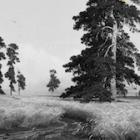Fedotova, Anastasia A. “The Origins of the Russian Chernozem Soil (Black Earth): Franz Joseph Ruprecht’s ‘Geo-Botanical Researches into the Chernozem’ of 1866.” Environment and History 16, no. 3 (August 2010): 271–93. doi:10.3197/096734010X519762. Republished by the Environment & Society Portal, Multimedia Library. http://www.environmentandsociety.org/node/7607.
This article analyses the contribution of the Austrian-born Russian scientist, Franz Joseph Ruprecht (1814–70) to the development of geobotany in general and to the controversial issue of the origins of the very fertile chernozem (Black Earth) of the steppe region of the Russian Empire. On the basis of careful field work and microscopic analysis of samples of chernozem, Ruprecht argued, in an important article published in St Petersburg in 1866, that the organic matter in the soil was decomposed steppe grasses. Thus, the chernozem was of steppe origins, not forest or peat as had been assumed by most scientists prior to his researches. Ruprecht’s work laid the basis for the later, and better known, work on the chernozem by pioneering soil scientist Vasilii Dokuchaev (1846–1903). The article places Ruprecht’s researches in the context of contemporary social, economic, and political as well as scientific developments.
— Text from The White Horse Press website
All rights reserved. © 2010 The White Horse Press


